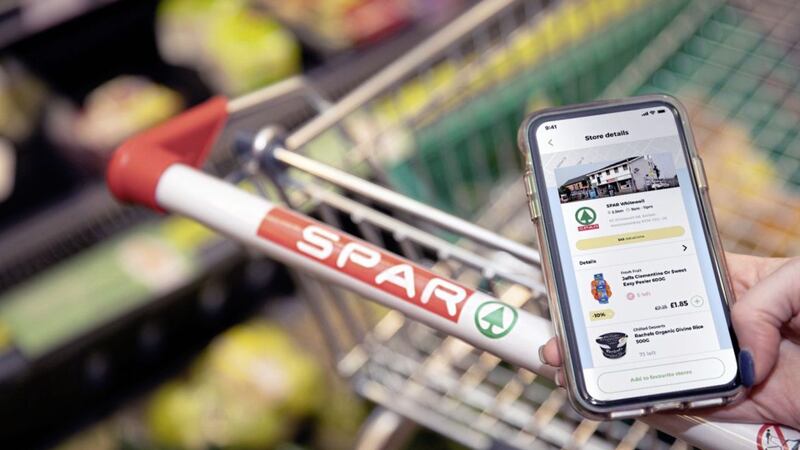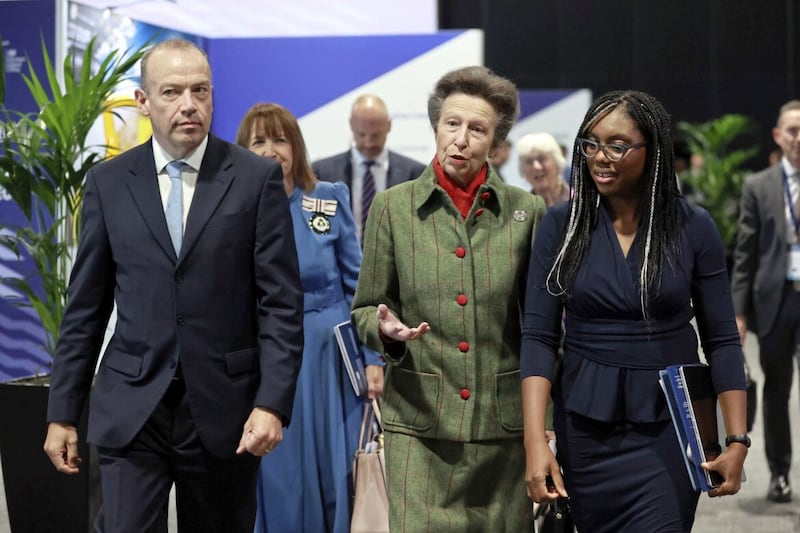FROM car-sharing to swapping clothes or staying in an Airbnb - the sharing economy is helping us all to maximise our resources, all at the click of a button.
With COP26 fresh in our thoughts, this is a sector with sustainability at its heart and built on the principle of finding creative ways to maximise efficient use of resources.
Millions of people across the globe routinely trade spaces, skills, and stuff using peer-to-peer platforms, and the number is rising due to growing awareness around the importance of making sustainable choices.
This, combined with ever-increasing use of technology across almost every aspect of our lives, has caused a boom in the sector. In the UK for example the sharing economy is expected to be worth £140 billion by 2025 –for Northern Ireland that equates to around £4.2 billion.
Products within the sharing economy tend to offer different locally targeted services. They can range from apps to reduce food waste to ride-share options, but fundamentally they have the same aim – to reduce waste. So, as both households and businesses head towards a low carbon future, it will be interesting to see how the sharing economy will support us on that journey.
Take the decarbonisation of transport, for example. Last year, the UK Government announced that it would phase out sales of new petrol and diesel cars and vans by 2030. As the country makes the switch to electric vehicles over the next decade, technology firms – which underpin car-sharing – are vital to help make car usage more efficient overall.
Another important example of the shared economy in action has emerged is around the important issue of food waste. There are a host of good apps and web platforms related to this issue. Some connect charities to food outlets, allowing them to pick up leftover food from restaurants and cafes that would otherwise be thrown away. Others that enable users to buy surplus food from the hospitality sector are having an immeasurable social impact by helping customers to eat more sustainably.
And it’s not just restaurants, retailers are keen to play their part also. For example, in 2018 when UK farmers faced a glut of cherries early in the summer due to a heatwave, Tesco stepped up and ordered an additional 115 tonnes to avoid the excess product going to landfill. Tesco then sold the cherries at a heavily discounted price to customers.
Within its own operations, Tesco has not sent food to landfill for more than a decade. And they’re not alone. Other local retailers like Centra have really stepped up too, for example, by 2025 Centra stores have donated over 25,000 meals to local charities through their partnership with Fareshare. Henderson Spar are also focusing on this issue – in 2019 they launched a joint technology venture with Gander to ensure that significantly less food goes to waste.
We have also seen lots of exciting new initiatives emerging among small food producers during the lockdown. With cheese-makers and other producers finding it impossible to move product due to business closures, local communities stepped-in to buy-up those products, reduce waste, support the environment, and support local businesses too.
There are also interesting examples of the shared economy operating in some of the community energy projects that have grown in popularity in recent years. Across Europe we see projects where households can join up to invest in local renewable energy supplies or even just link-up to purchase gas or electricity at wholesale prices.
For example, in Denmark, local communities have been investing in individual wind turbine projects and using the power to supply an entire village - or a few neighbouring farms – for decades. These projects allow communities to take a stake in low carbon energy, while sharing both the investment costs and benefits too.
At CBI we believe that industry has the imagination, the technology and the collective will to address the world’s carbon challenge by targeting the critical drivers innovative technology and customer behaviour. But it also needs the backing of the NI Executive and the UK Government.
At the CBI we’ll continue to work tirelessly with government at all levels to ensure that climate change policy unlocks green investment, green innovation and supports low carbon and waste reduction behaviours.
If we keep the focus on action, we can set ourselves on course for a better world – one where we all share more and waste less. Without doubt, the shared economy will play an important role in delivering our net zero future.
:: Angela McGowan is CBI Northern Ireland director








